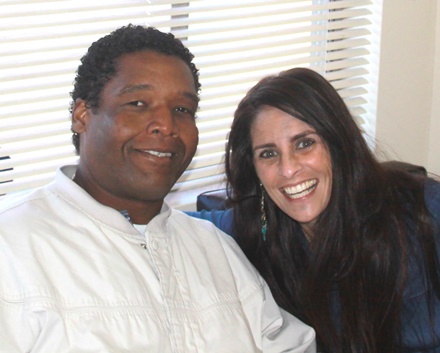Yesterday, California Gov. Jerry Brown signed SB 980, sponsored by the Northern California Innocence Project at Santa Clara University, which will improve the process for wrongfully convicted prisoners to obtain DNA testing.
The bill, authored by Sen. Ted Lieu, gives prisoners improved access to the physical and biological evidence preserved in their cases and clarifies the procedures for obtaining DNA testing in California. SB 980 was co-sponsored by NCIP, the California Innocence Project, The Project for the Innocent at Loyola Law School, and the American Civil Liberties Union.
About the changes to DNA-testing law
The bill makes the following specific improvements to inmates’ access to DNA evidence:
- Requires law enforcement agencies to provide information about the existence of biological evidence, such as whether it has been destroyed or preserved;
- Extends the period of time inmates and their counsel have to respond to a notice of evidence destruction from 90 days to 180 days, and further extends the time for requesting DNA testing from six months to one year;
- Enables courts to order the relevant government agency to search the FBI’s Combined DNA Index System (CODIS) database for a match in order to find the true perpetrator, in the event that the DNA test is granted and the results exclude the convicted person.
“SB 980 will enable our state to identify wrongful convictions with more ease, exonerate the innocent, and continue the criminal investigation to catch the true perpetrator,” said Cathy Dreyfuss, director of NCIP’s DNA Project. “These sensible reforms will also reduce years of needless, costly litigation that currently impacts our court system.”

Over 300 exonerations in the United States have been based on DNA evidence, including NCIP client Johnny Williams (pictured here with his NCIP attorney Melissa O’Connell), exonerated in 2013.
“We are delighted that Governor Brown signed SB 980 into law,” said David Onek, NCIP’s executive director. “It will help us discover the truth more quickly for our incarcerated clients, and seek relief for those who were wrongfully convicted. NCIP thanks Senator Ted Lieu for authoring SB 980 and for his dedication to justice.”
“This new law will protect those for whom justice has fallen short,” Sen. Lieu said. A news release on the bill from Sen. Lieu’s office is at: sd28.senate.ca.gov/news/2014-09-25-gov-brown-signs-innocence-project-backed-plan-expand-dna-testing#sthash.jBLQ4Osh.dpuf
About SB 1058
A second NCIP-sponsored bill currently on Gov. Brown’s desk is California Senate Bill 1058, which would help exonerate innocent men and women who have been wrongfully convicted based on outdated expert testimony. Authored by Sen. Mark Leno and sponsored by NCIP and other organizations, the legislation would help assure people wrongfully convicted based on such testimony can have their conviction overturned when the expert later admits he or she was wrong, or when new science proves the testimony wrong.
SB 1058 was supported by numerous criminal justice and civil rights organizations and received strong bipartisan support in both houses of the Legislature.
“Unfortunately, there are innocent people currently in prison based on outdated forensic evidence that technological developments have later disproven,” said Linda Starr, NCIP Legal Director. “SB 1058 is a common sense measure that gives courts the ability to weigh the most current, accurate and reliable forensic evidence in determining whether to overturn a potentially wrongful conviction. Our justice system and the wrongfully convicted deserve nothing less.”
SB 980 and SB 1058 extend NCIP’s active legislative and advocacy efforts on behalf of the wrongfully convicted. In 2013, NCIP was instrumental in passing two bills that Gov. Brown signed into law: SB 618, authored by Sen. Leno, which improves the process for compensating exonerated people, and SB 569, authored by Sen. Lieu, which helps to prevent false confessions by requiring that police departments videotape interrogations of juveniles accused of murder.